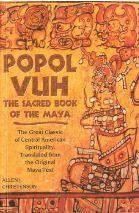In the Latino USA podcast, the episode titled “A Child Lost in Translation” describes a story where someone’s nightmare turns into reality. Originally broadcasted on May 31st, 2019, and published in Latino USA on April 29th, 2022, this episode is about Teresa Matias and her five children. Listening to this episode on May 3rd, 2022, I find out how cracked our justice system truly is. Hosts Janice Llamoca and Ashley Cleek tell the story of how a woman named M, for privacy issues, stole Matias’s child right in front of her.
 |
| A Child and Mother |
The article titled “TOWARD NEW UNDERSTANDINGS OF ADOPTION: INDIVIDUALS AND RELATIONSHIPS IN TRANSRACIAL AND OPEN ADOPTION" by Mary Lyndon Shanley, goes over the history of adoption and the controversial questions that it surfaces. It analyzes questions such as should black children be adopted by black parents? Should white children be adopted by white parents? I selected this article because t dived deeper into the problem of adoption. Yes, there are plenty of great outcomes. But like all things, adoption can be used as a tool. In this article, Shanley states, “E. Wayne Carp has argued that what he calls the shift from confidentiality (records closed to all but "the parties of interest": i.e., birth parents, adoptive parents, and child) to secrecy (records inaccessible to everyone except by a court order) arose from a complex set of factors, including social workers' desire "to defend the adoptive parents, protect the privacy of unwed mothers, increase their own influence and power, and bolster social work professionalism." Adoptive parents tried to avoid the stigma of infertility and the fear that the birth parents might reappear by pushing for secrecy” (Shanley 23-24). This quote explains what has happened in the justice system for Matias. Adoptions can be secretive, not for the benefit of the child, but for the benefit of the adoptive parents.
My theme of religion plays a part in both the episode and article. In the article, the question of “Should a Catholic child be placed only with Catholic parents and a Muslim child only with Muslim parents?” (Shanley 1) is stated as a controversial question. This question alone shows how important we believe religion is in the lives of others. In the episode, before Matias's child is taken away from her, she gets all five of her children baptized. It states, “Her children were part of the religion she grew up with. And Teresa finally had a community” (Latino, 11:15 - 11:21). Having her children connected to her by the religion that she grew up with made her happy. It again goes to show how others give importance to religion. This story of Matias and the article by Shanle both show us faults in the justice system, one more than the other.
Here it shows that the constitution states that we have the right to an interpreter in court and how the need for them is growing:
Works Cited:
Latino USA, 13 Mar. 2022, www.latinousa.org/.
SHANLEY, MARY LYNDON. “TOWARD NEW UNDERSTANDINGS OF ADOPTION: INDIVIDUALS AND RELATIONSHIPS IN TRANSRACIAL AND OPEN ADOPTION.” Nomos, vol. 44, 2003, pp. 15–57, http://www.jstor.org/stable/24220070. Accessed 4 May 2022.



No comments:
Post a Comment